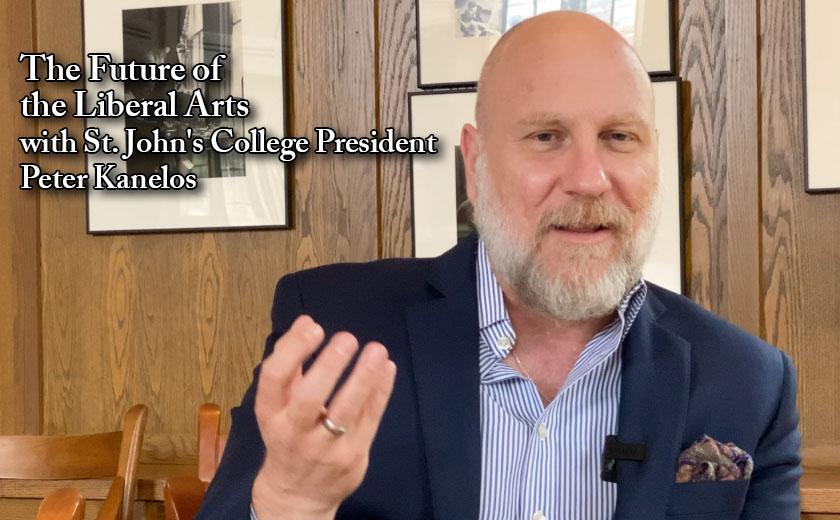Peter Kanelos, the president of St. John’s College, makes it clear that he regards his school as essential to the future of higher education. That doesn’t seem to be such a remarkable statement on its own. One could argue that every college president says the same thing about their school. But President Kanelos’ point is still quite bold given that his institution bases its entire curriculum on the reading of the “Great Books” of world culture.
In fact, at a time when students, and their parents, have been conditioned to think of higher education is a necessary gateway to a professional career, Kanelos says that a St. John’s degree may be one of the worst preparations for landing an entry-level position after graduation but also the best education one can receive.
While St. John’s is one of the oldest colleges in America, its mission dramatically changed in the late 1930s when it was hit hard by the Great Depression. Facing low enrollment and limited cash reserves, The college leadership, with the help of a team of academics from the University of Chicago, pivoted from their traditional model and embraced a Great Books program that centered on around 500 great books. By studying these classics, students could build their intellectual muscles far more successfully than a college major program.
It was an audacious move in 1937, and it’s looking like one in 2020.
In the Spy’s first interview with President Kanelos, he talks about this unique approach to education, and how he and his institution are still radically changing the nature of higher education. That includes doing things like reducing tuition by thirty-three percent two years ago or by making a compelling argument that the years of the college major might be over.
This video is approximately twelve minutes in length. For more information about St. John’s College please go here.



Forest Hansen says
What a fresh voice in higher education, describing not just the value of his liberal arts college but the value of what should be an education for enlightened mental growth and committed citizenship. Would that we have more of such leadership and purpose, not just in higher education but throughout all its levels, from grade school on.